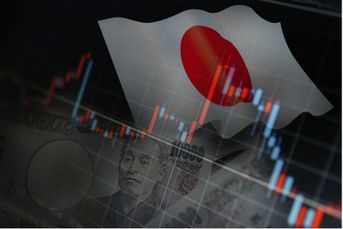Stocks resume slide as bond yields climb
Treasury 10-year yield is trading at a four-year high at 2.85%, stoking fears of Fed tightening
Volatility’s grip on global markets tightened Thursday as surging Treasury yields renewed concern that higher rates will drag on the economy and pushed U.S. stocks lower for the fourth time in five days.
The 10-year Treasury yield resumed its march toward 3%. It recently was up two basis points at 2.85%, touching a four-year high and stoking angst that the Federal Reserve will be forced to tighten.
Equity markets buckled again, with the S&P 500 tumbling as much as 1.5% while the Cboe Volatility Index remained double its level from a week ago.
The S&P 500 Index fell 1.4% as of 11:33 a.m. New York time. The Dow Jones industrial average lost 1.7% and the Nasdaq 100 Index fell 1.6%. The Stoxx Europe 600 Index dipped 1.8%. The U.K.’s FTSE 100 Index sank 1.6%. The MSCI Emerging Market Index fell 0.9%.
Measures of anxiety across assets showed jitters mounting in other areas of the financial markets. The surge in Treasury yields pushed the VIX’s bond-market cousin to its highest since April. A measure of currency volatility spiked to levels last seen almost a year ago, with a plunge in the yuan and a rise in the pound adding to turbulence. European equities weren’t spared, with the Euro Stoxx 50 volatility gauge spiking toward the highest since June 2016.
Traders remain on edge after the resurgent threat of inflation and higher bond yields helped trigger the burst of volatility and a pullback across the overheated global equity market. Bulls may have to question the wisdom of buying the dip when more selling by speculators may be imminent. This week’s Treasury auctions have underwhelmed, raising the prospect that the debt selloff could steepen. Traders are also facing the prospect of Fed rate hikes, which could cool growth.
“There’s some big-money players that have really leveraged to the low rates forever, and they have to unwind those trades,” said Doug Cote, chief market strategist at Voya Investment Management. “They could be in full panic mode right now.”https://www.investmentnews.com/assets/docs src=”/wp-content/uploads2018/02/CI11426928.PNG”
U.K. gilts sold off and the pound rose after the Bank of England lifted its forecasts for economic growth and suggested it may need to raise interest rates faster than previously indicated. The euro fluctuated as ECB member Jens Weidmann said the central bank will monitor the impact of the currency on inflation.
In Asia, the yuan earlier fell the most since the currency’s devaluation in August 2015 after China reported a much narrower-than-expected trade surplus as imports jumped. The country has resumed its Qualified Domestic Limited Partnership plan after a two-year halt, granting licenses to about a dozen global money managers that can raise funds in China for overseas investments, Reuters reported on Thursday, citing people it didn’t identify. Increasing imports and investment overseas both contribute to a weaker currency.
Learn more about reprints and licensing for this article.








